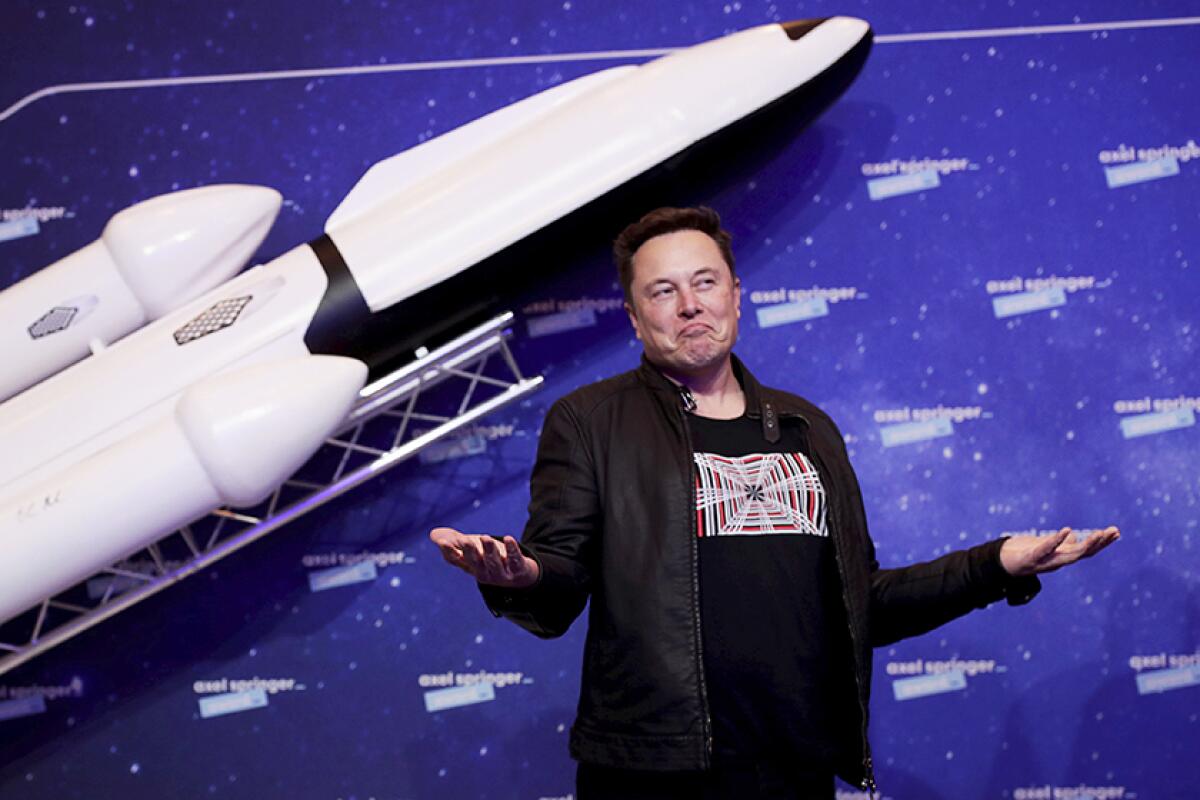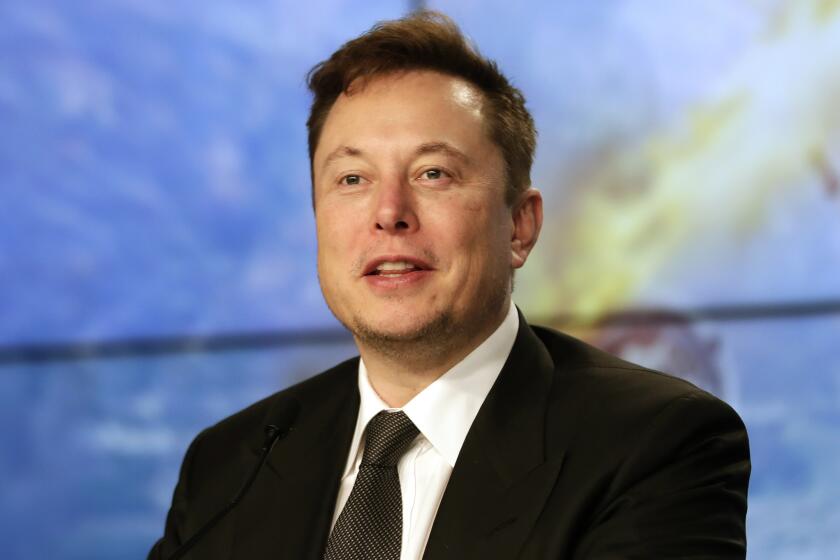Elon Musk hints at negotiating down price on Twitter purchase

- Share via
Elon Musk stoked speculation that he could seek to renegotiate his takeover of Twitter Inc., saying a viable deal at a lower price wouldn’t be “out of the question.”
Twitter shares fell 8.2% at the close of trading in New York. The stock has been dropping on concern that Musk could walk away from the $44-billion acquisition. That concern has grown over the last week as Musk has questioned Twitter’s publicly disclosed data on the percentage of spam and fake accounts on its social media platform.
Musk pressed further on that front Monday at a Miami tech conference, estimating that fake users make up at least 20% of all Twitter accounts. That was the low end of his estimate on the number of Twitter bots, and he asked rhetorically whether the number could be as high as 90%, according to a livestreamed video of his remarks posted by a Twitter user.
“Currently what I’m being told is that there’s just no way to know the number of bots,” Musk said at the conference. “It’s like, as unknowable as the human soul.”
Twitter declined to comment. The San Francisco-based company reports quarterly that spam accounts make up less than 5% of total users.
Elon Musk tweeted early Friday that his planned acquisition of the social network was “temporarily on hold.” This is a familiar pattern for the tech magnate.
Musk, the chief executive of Tesla Inc. and SpaceX, said last week that his bid to buy Twitter was “temporarily on hold” pending details about how many spam and fake accounts are on the platform. Over the weekend, he tweeted that Twitter’s legal team called to complain that he had violated their nondisclosure agreement by publicly sharing the company’s methodology.
Twitter CEO Parag Agrawal disputed that Monday in a tweet thread that offered more details on the company’s approach to spam accounts. Agrawal said Twitter manually checks thousands of accounts every quarter to determine how many should be counted as spam, but added that the process could not be conducted externally because of user privacy concerns.
Agrawal said Twitter “shared an overview of the estimation process with Elon a week ago.” Musk replied to the CEO’s tweet thread by first asking why Twitter doesn’t just call users to verify their identity — and then by posting a poop emoji.
Musk spoke at a conference hosted by a podcast called “All-In” run by Chamath Palihapitiya, Jason Calacanis, David Sacks and David Friedberg. The $7,500-per-person event was sold out, and organizers said journalists were excluded from attending. Musk appeared at the Miami summit via videoconference.
Musk began buying Twitter shares in January and disclosed a 9.2% stake in the company April 4. Twitter’s board accepted Musk’s $44-billion bid to buy the company and take it private April 25, but the deal has yet to close and Twitter’s shares are trading far below Musk’s offer. One theory is that Musk is angling to pay a lower price for Twitter by raising the issue of fake accounts.
The spread between Musk’s $54.20-a-share offer price and Twitter’s share price continues to widen, wiping out all the gains the stock had made since Musk disclosed his stake in the social media platform.
In the same appearance, Musk said he thought that the U.S. economy was “probably” in a recession — a judgment at odds with economists’ assessments and available data — and cautioned companies to watch costs and cash flows.
“These things pass and then there will be boom times again,” he said. “It’ll probably be some tough going for, I don’t know, a year, maybe 12 to 18 months.”
Recession fears have been growing recently as the Federal Reserve tightens monetary policy to help cool down inflation that’s running near its hottest pace since the early 1980s. Still, the odds of a downturn in the coming year currently stand at 30%, according to the latest Bloomberg monthly survey of economists.







